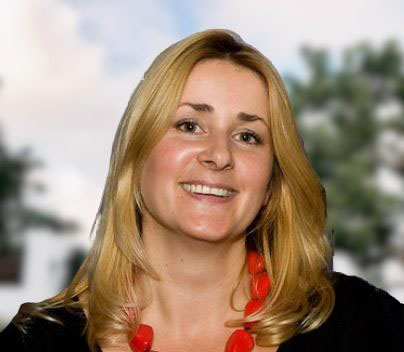
We sat down with Katriona Edlmann ahead of her upcoming GeoLogica course: Hydrogen Masterclass - Production, Geological Storage and Operational Engineering.
What's your field and specialisation?
My research has focused on the sustainable utilisation of the subsurface for low carbon energy applications. So, this will include things like carbon capture and storage, energy storage, particularly hydrogen storage, unconventional hydrocarbons and geothermal operations. And then, for my own work, I design and build experimental equipment that recreates the subsurface conditions, effectively creating a window into the subsurface from the laboratory. It means we can look at what changes are going to happen in the subsurface rocks and fluids during any of these low-carbon energy applications. For example, I can look at what geochemical changes might be induced when hydrogen is injected into a porous depleted gas field. We can use these experiments to unpick the underlying controls, such as how pressure might influence the rate of reaction. These experiments will really help us select the best storage sites and manage them most effectively to avoid negative impacts on storage integrity during the storage operations.
Tell us a bit about your teaching journey.
I started as a PhD tutor while still doing my own PhD, and I've loved that part of my academic role ever since. I really enjoy teaching classes, but I prefer it when we can be interactive (with the students). One of the aspects of teaching that I really enjoy, therefore, is working with students on their dissertation projects, where I get to see them grow in confidence and watch them embark on their exciting careers after graduation.
I'm a fellow of the Higher Education Authority and I did a postgraduate certificate in academic practice to really develop my teaching and reflect on and improve my practice. So, I'm constantly learning from the students.
I don't know what else to say about this one... I just really enjoy it!
What is your favourite memory from fieldwork or field training?
That’s an easy one! When I was doing my master's degree with Heriot-Watt [University], we did a field trip to the Book Cliffs in Utah, which is HEAVEN for a geologist. Just being there was phenomenal – the exposure is extraordinary – but during the day we happened to come across a fresh rockfall that had revealed some dinosaur footprints, and we were seeing those for the first time since they had been imprinted in the mud all those millions of years ago. And that was, from an emotional point of view, just spectacular.
And, at the end of the day, while drinking beer at a microbrewery (which are so good in Utah!), we were treated to a very impressive, particularly bright fly-past from the Hale Bopp comet. That was fantastic.
Being someone who spends most of my time in the lab, I also want to add here the fact that not all geologists regularly work out in the field and not all geologists actually like being out in the field. Some of my absolute favourite moments have been in the lab! When you've drawn something on a piece of paper, then designed it, built it, it works exactly as it should and you gain new insights or perhaps see something that you weren’t expecting to see – THAT to me is as fantastic, as rewarding, as any fieldwork.

A photo from one of Katriona's favourite outcrop visits, to in Arches National Park, Utah
Tell us about your upcoming course with GeoLogica – what is it about and who is it for?
As we pivot to a world away from fossil fuels and move to more sustainable energy solutions, which we absolutely need to do, hydrogen is increasingly becoming recognised as a very important part of this future low-carbon energy system. It provides essential energy storage to support increased capacity for renewable energy. We’re looking to switch the energy balance from the current 70–80% fossil fuels and 20–30% renewable electricity to the opposite of that: 70–80% renewable, 20–30% another energy vector, which is most likely to be hydrogen.
My course will really highlight the role that hydrogen can play in supporting our journey to net zero – how it can support increased renewables and how it can decarbonise or tackle some of those harder-to-electrify sectors, such as industrial heat or heavy-duty transport. My hydrogen masterclass dives into the complexities and opportunities for hydrogen, looking at production, geological storage and the intricacies of the operational engineering and its integration into the energy system. It offers theoretical knowledge and practical insights.
In terms of who the course is aimed at, I would say it's suitable for geologists, geophysicists, engineers, regulators and policymakers – anyone, really, with an interest in the emerging hydrogen economy.
We cover everything from the basics through to the more complex. The aim is for you to have a wider appreciation of the role of geoscience within the hydrogen economy and the contribution that hydrogen can make to the energy transition.
Tell us a fun fact about yourself that most people don't know
I really like restoring old cars. So, I spend an awful lot of my time looking after my 1984 Citroen 2CVthat I am managing to keep going on the road. She has recently passed her MOT with no defects so I'm feeling pretty chuffed about that. She's getting a bit rusty now but we'll get there – my job for the winter!
What is the biggest challenge facing the sector today from your perspective?
From where I sit, there has certainly been a shift in awareness that we need to cut our emissions from energy. However, translating that into action is really challenging. For me, I think the most important thing we need to do is bring the public with us –change public perception– highlighting the community benefits that can come from hydrogen storage and taking away that element of fear or uncertainty.
What would be your advice to geoscientists who are just starting their careers?
So, I’m the careers coordinator for geosciences [at the University of Edinburgh] and I ran a careers event yesterday because a lot of the big environmental consultancies start their graduate recruitment in November–December for the following September. There are plenty of opportunities out there but it's really just a case of understanding how you can connect with people. I suppose, therefore, the main piece of advice I give to anybody starting their career is to begin to build that professional network; join LinkedIn, join organisations, attend conferences (especially the free industry ones) and connect with your peers and with professionals who are working in that field. Don't be frightened to reach out to someone – what's the worst that's going to happen? They might ignore your request but, equally, they may get back in touch with you, and once you've got that, it'll open the door to job opportunities or possibilities for collaboration.
Secondly, this field is changing particularly quickly. Three years ago, nobody would have even heard of you if you'd said you worked in hydrogen, whereas now, they can't get enough people working in hydrogen. So, from a geoscience point of view, keep up-to-date with current research and attend workshops, conferences and webinars. Maintaining that up-to-date and broad knowledge base and network will help.
Lastly, just try always to remember why you started [geoscience] in the first place. Keep passionate about the subject you do and remain adaptable in that ever-changing job market.
Give us your best/worst geology joke?
This is so bad.
Q: Did you hear about the geologist who was reading a book on helium?
No...
A: She couldn't put it down.
That’s terrible
You asked for it!
Hydrogen Masterclass: Production, Geological Storage and Operational Engineering by Katriona Edlmann will be running from 23 - 27 October 2023.
KeyFacts Energy Industry Directory: GeoLogica l KeyFacts Energy news: Training
 KEYFACT Energy
KEYFACT Energy